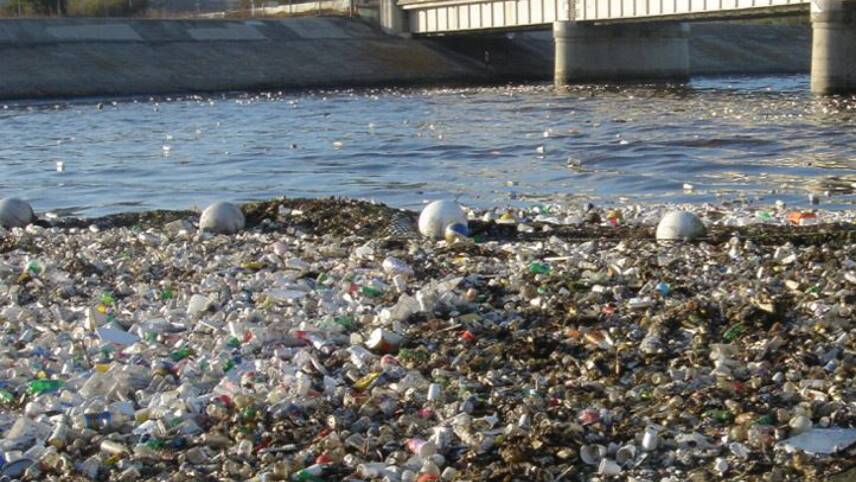Register for free and continue reading
Join our growing army of changemakers and get unlimited access to our premium content

Pictured: Plastic pollution in Long Beach
The date, marked for the first time this year, has been calculated by Swiss research consultancy Earth Action (EA).
EA has calculated that the global production of plastics designed to only be used for a short time is set to reach 159 million tonnes this year. This is 68.5 million tonnes more of these plastics than waste management systems can process safely within a year.
These plastics are more likely than not to be mismanaged. With no capacity to recycle them or safely process them for a landfill or incinerator, they will likely end up in storage or polluting the environment.
This is not a new challenge for 2023. EA estimates that globally, plastic production capacity has increased 20 times more rapidly than recycling capacity over the past 10 years.
When it comes to plastic consumption on a per-person basis, the world’s worst offender is Iceland. The nation’s sparse population and reliance on imported goods are reasons as to why. Rounding out the top ten are Mongolia, the UAE, Singapore, Luxembourg, Kuwait, the USA, Saudi Ariabia, Italy and Canada.
But Canada and the US will not reach their plastic overshoot days until winter, given that they have extensive waste management systems. The nations which consume the most plastic are not always those with the most mismanaged waste.
Plastic pollution is particularly impacting developing and emerging markets without mature waste management systems, but which are importing more plastic waste as a means to make money. EA calls these markets “waste sponges” and names nations including India, South Africa and Ecuador in its report.
Markets that have not grown their waste management systems in line with population growth and the uptake of disposables are also at risk. Nations in this category include Moldova, Mongolia, Mexico and Kuwait.
WWF’s global plastics initiative lead John Duncan supported the new report. He said: “For too long, the inequalities inherent in the current plastics system have kept the plastic pollution problem out-of-sight and out-of-mind for many, with the social, economic, and ecological burden being borne by lower-income countries and poorer communities.”
Similarly, EA founder and chief executive Julien Boucher said it is necessary to measure and report plastic footprints like carbon. The purpose of this is to identify which interventions would be most impactful for different nations, depending on factors such as their waste management system and their waste import and export needs.
The EA report breaks the world down into ten different types of nations in terms of their plastic waste management. It then makes recommendations for reducing mismanaged plastics in each kind.
What can the transactors do?
The UK, along with the likes of Australia, Canada and several EU member states, is classed as a “transactor”. Transactors are wealthy nations with high plastic consumption rates and, while they often landfill and incinerate their plastics, their recycling capacity is lacking. They are key players on the global import and export stage.
Reducing plastic production and use is the key recommendation for the EA for these nations. Citizens are likely using plastic for non-essential reasons, the report outlines. Reductions in production and consumption can be facilitated by expanding reuse and repair systems, plus product durability – it will not all come down to recycling.
Earlier this week, the UK Government confirmed a one-year delay to the introduction of new rules designed to ensure that packaging producers pay towards the recycling of their products. The new EPR rules were first promised in 2018 and Ministers say this latest delay is the result of inflationary pressures on businesses.


Please login or Register to leave a comment.